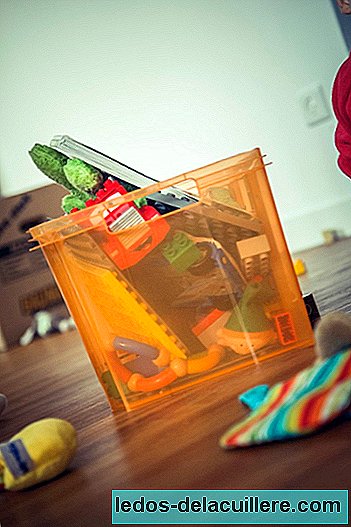
According to a study carried out in the United States, since the 50's there has been a gradual increase of secular families, that is, of that type of family in which there is no relationship with any religion, which leads to more and more Children grow up in homes where they neither pray nor speak of God.
Vern Bengston, professor of gerontology and sociology at the University of Southern California, has overseen for over 40 years the Longitudinal Generation Study, which has become a reference that relates family life and religion through several generations in the United States. Now Bengston analyzes Secular families, how are their values?

The families in which no belief is practiced have gone from 4% in the 50s to over 11% in 2012. This is the data that has caused the study of this type of families and their impact on today's society .
On the occasion of the social changes produced as a result of the socio-political and technological changes of the last decades, it has given rise to a lesser need for God in the family nucleus. But what does this imply? If we move from a society of values based on religion, to another that has eliminated religion from its daily routine, What about those values? How are they in those families?
Well, despite what many believe, far from being dysfunctional or aimless or of questionable morals, Secular homes provide a solid foundation in values for children.
When Bengston analyzed the behavioral data of non-religious families, he was surprised at the high levels of family solidarity and emotional closeness between parents and children, strong ethical and moral values transmitted clearly and firmly to the new generations.
"Many of the non-religious parents are more consistent and passionate about their ethical principles than their believing homonyms." Vern Bengston
According to the author, many of the non-religious parents are more coherent and passionate about their ethical principles than their believing homonyms. The study confirms that non-religious family life presents its own moral values and enriching ethical precepts. The main one: the rational resolution of problems, personal autonomy, independence of thought, the elimination of corporal punishment, the spirit of "questioning everything" and, above all, empathy.
The golden rule: treat others as you would like to be treated

For non-believing families, morality is based on a basic principle, empathic reciprocity. An ancient universal ethical imperative, which does not require gods or supernatural presences.
"The way we teach our children what is right and what is wrong is trying to instill a sense of empathy. How do other people feel? How do you feel on the other side? And for that I don't see the need of God. " A mother commented in the study.
The idea of non-believing families is to separate ethics and morals from God and religion. If your morality is linked to God, what happens if you start questioning its existence? Does your moral world have to fall apart for it?
Secular adults tend to be less vindictive, nationalistic, belligerent and authoritarian.
The study also shows that children who have grown up in these environments are less likely to follow the "general flow" and be more critical of what is fashionable at the time. Also and according a 2010 Duke University studyWhen they become adults they will be less likely to present racist attitudes. Many of these psychological studies show that secular adults tend to be less vindictive, nationalistic, belligerent and authoritarian, fostering other skills such as tolerance, are more likely to accept the scientific explanation of global warming, accept women's equality or homosexuality. .
Most of them also remain without believing in God for the rest of their lives. According to statistics from the Federal Bureau of Prisons of the United States, atheists were almost absent in the prison inmate population, about 1% and those countries with a larger population of non-believers, such as Switzerland, Japan or Denmark have a rate of lower crime than those with a lower proportion of non-believers.
In my opinion This study dissipates the doubts of some parents who decide to educate their children away from any religion in relation to the moral code and value them with which they will develop in the future. What is clear is that non-religious values are as strong and "healthy" as those based on religion. Moreover, many of them do not belong to any of the existing religions, they are not an invention of God, but one of the pillars on which human society has been forged. Empathy, morality and respect for others is not instilled by any god, it is something necessary to form a society in which we have survived all of us for millions of years.












